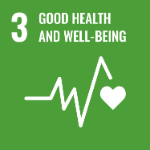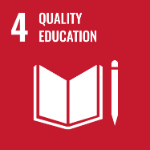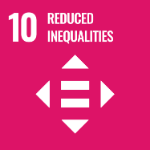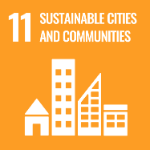Good Grief Festival
Despite growing awareness of the need for better dialogue and resources around grief, there remains a lack of accessible, inclusive platforms that foster education, support, and engagement
Social venture highlights
Good Grief embodies a public health approach to end-of-life and bereavement support, aiming to support the public in three key ways:
- Shifting the conversation. 32% of UK adults said they didn’t know how to start a conversation after a bereavement, and 60% of bereaved people reported that their community had not helped them deal with their grief. Good Grief provides space for people to reflect on mortality and loss, grow in confidence, and share their experiences.
- Providing information. Good Grief works to widen access to research and scholarship and increase knowledge of grief and bereavement, demonstrating that there are many different ways to grieve and to support someone who is grieving.
- Build community. While professional bereavement support can be helpful, long waiting lists are common and the cost of private counselling is prohibitive for many. There are also known barriers to accessing appropriate support if you are from a minoritised ethnic community or are LGTBQ+. Free, online and open to all, Good Grief welcomes everyone, providing information, inspiration and understanding in a safe and affirming environment which shows us that we are not alone.
Creating an inclusive spin out to support grieving people
Death, dying, and grief are often stigmatised and avoided, leaving individuals, families, and communities unprepared and unsupported during some of life's most challenging moments. Despite growing awareness of the need for better dialogue and resources around grief, there remains a lack of accessible, inclusive platforms that foster education, support, and engagement. Existing services often fail to bridge gaps between academic research, practical resources, and community needs.
In December 2024, Good Grief Festival launched as a Community Interest Company, spinning out from the University of Bristol, but maintaining its close links.
A festival to explore death and bereavement
Founded in 2020, Good Grief Festival offers virtual and in-person events that aim to spark conversations around grief and end-of-life topics, showing that these are painful but important aspect of human experience which need to be understood, respected and supported. Good Grief events bring people together to gain insight and knowledge, hear stories they can relate to, and be part of a community.
On YouTube, Grief Channel offers free and unlimited access to 250+ curated recordings, allowing viewers to create their own grief toolkit and access information, support and solidarity whenever they need it. Since the first festival, Good Grief have welcomed over 35,000 people to their events, with recordings watched 210k times on Vimeo and YouTube.
Through collaborating with Super Culture and the Weston-super-Mare Community Network, Good Grief have held two in-person festivals to date (2023, 2024), both in Weston-super-Mare, called Good Grief Weston, involving collaboration with a huge range of people and organisations across sectors. In spring 2026 they have plans for further festivals in Hastings, Blackpool and (funding permitting) Weston-super-Mare.
Good Grief Festival also runs educational courses, with our first three pilot courses each attended by 800-1200 people. Their social media reach is 20k; 4.5k YouTube subscribers; 25k mailing list.
Each in-person festival costs at least £25k.
An equity-focused festival integrating arts, culture and creativity
One of the key aims – and challenges – of the festival was to find ways to reach people who wouldn’t normally come to academic or grief-related events and to initiate and sustain an inclusive conversation about death, dying and bereavement. From the beginning, Good Grief sought to keep content free or low cost and accessible, aiming to offer something for everyone. All events are evaluated and have a clear strategy and plan for increasing reach and diversity.
The diverse programmes cover topics from Harry Potter to wild-swimming; feature big names in music, comedy and literature; unpack grief concepts and current research with accessible talks; and target practical issues affecting bereaved people, such as how to manage grief during the holidays. Special guests have included Julia Samuel MBE, Cariad Lloyd, David Kessler, Michael Rosen, Nikesh Shukla, Ruby Wax, Stuart Lawrence, Dr Kathryn Mannix, Dr Rachel Clarke, Amber Jeffrey and Professor Robert Neimeyer. Good Grief have also included sessions on forms of grief that are often stigmatised, such as bereavement due to suicide, drug overdose or knife crime.
In 2023, Good Grief were shortlisted for a Demystifying Death Award.
Related Sustainable Development Goals:




